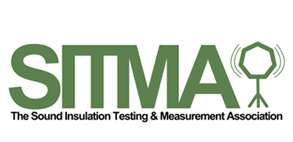Offices Nationwide

How loud is too loud?
Continued exposure to noise above 85 dBA (adjusted decibels) over time will cause hearing loss. The volume (dBA) and the length of exposure to the sound will tell you how harmful the noise is.
In general, the louder the noise, the less time required before hearing loss will occur.



Air Testing & Leakage
Our engineers use Thermal camera and extensive knowledge of buildings to help find leakage areas within the building and can advice of these.



Reverberation Time
The ‘reverberation time’ of a space changes the way the space ‘sounds’ and can affect the intelligibility acoustic information. A high reverberation time can make a room sound muffled, loud and noisy. Rooms designed for speech typically have a low reverberation time, whereas a higher reverberation time can add depth, richness and warmth to music.
The reverberation time of a room is defined as the time it takes for sound to decay by 60 dB after an abrupt termination. It is linked to the total quantity of soft treatments and the volume of the room.



Point of Reference
Points of Reference *measured in dBA or decibels:
- 0 The softest sound a person can hear with normal hearing
- 10 normal breathing
- 20 whispering at 5 feet
- 30 soft whisper
- 50 rainfall
- 60 normal conversation
- 110 shouting in ear
- 120 thunder


Copyright 2025 E2 Specialist Consultants Limited
Company No. 06728970

































